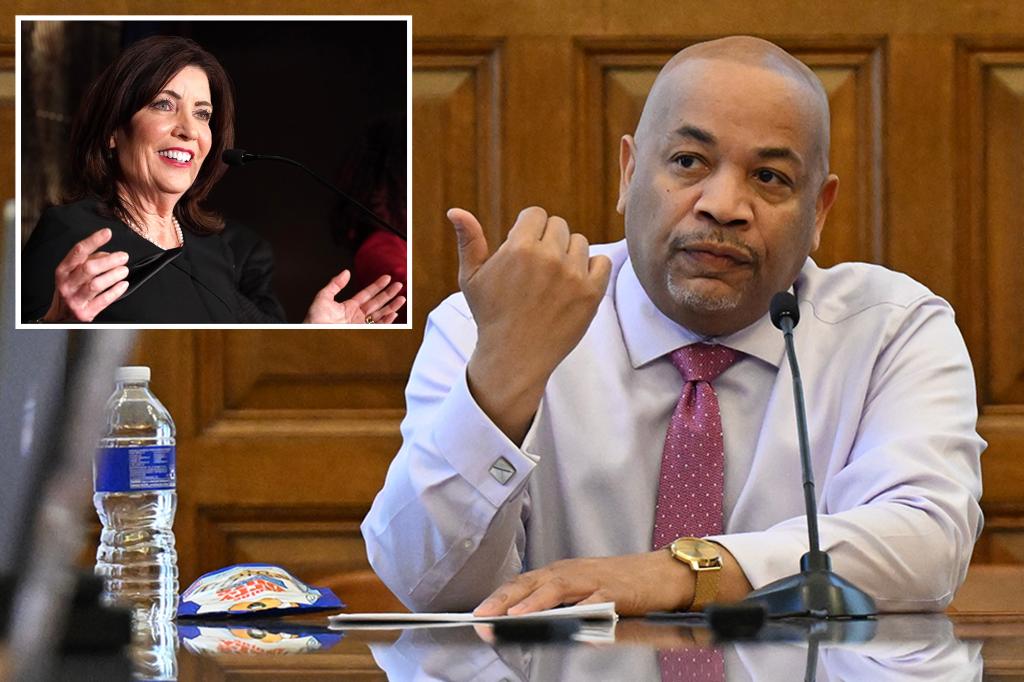New York’s Mental Health Crisis: Lawmakers Push for Involuntary Commitment Reform
New York lawmakers are advancing controversial reforms to the state’s involuntary commitment laws amid escalating violence linked to untreated mental illness. With a 34% increase in subway assaults since 2019 and high-profile attacks dominating headlines, legislators argue current policies fail to protect both patients and the public. The proposed changes would broaden criteria for emergency psychiatric holds while increasing funding for long-term care facilities—a move sparking fierce debate between civil liberties advocates and public safety proponents.
The Rising Tide of Violence Sparks Urgent Action
Data from the NYPD reveals disturbing trends that have forced the issue onto Albany’s agenda:
- Mental health-related 911 calls surged 41% between 2018-2022
- Homeless individuals—many with severe mental illness—committed 20% of felony assaults in 2023
- Only 32% of psychiatric hospital beds remain available statewide since 2000 facility closures
“We’re seeing the same individuals cycle through emergency rooms, jails, and streets without meaningful treatment,” explains Dr. Miriam Kowalski, a Columbia University forensic psychiatrist. “The current threshold for intervention requires someone to be actively suicidal or homicidal—essentially waiting until tragedy strikes.”
What the Proposed Reforms Would Change
The bipartisan legislation focuses on three key areas:
- Expanded Evaluation Criteria: Allows intervention when individuals show “substantial risk” of harm due to inability to meet basic needs
- Extended Observation Periods: Increases emergency hold duration from 72 hours to 14 days for comprehensive assessment
- Statewide Bed Mandate: Requires maintaining one psychiatric bed per 10,000 residents by 2028
Supporters point to California’s recent success with similar reforms under Laura’s Law, which reduced homelessness among the severely mentally ill by 28% in participating counties. “This isn’t about institutionalization—it’s about creating pathways to stability,” argues Assemblymember Carl Rivera (D-Bronx), the bill’s primary sponsor.
Civil Liberties Concerns and Alternative Approaches
Opponents warn the measures could disproportionately target marginalized communities. “Forced treatment has a horrific history in this country, particularly for Black and brown New Yorkers,” says Jamilah Carter of the Urban Justice Center’s Mental Health Project. Her organization advocates for expanding voluntary services like:
- 24/7 crisis stabilization centers
- Mobile treatment teams
- Supported housing programs
Research suggests both approaches may be necessary. A 2022 Johns Hopkins study found that combining assertive community treatment with limited involuntary holds reduced arrests and hospitalizations by 53% among high-risk patients.
The Human Cost of Inaction
Behind the statistics are harrowing personal stories. Maria Gutierrez, whose schizophrenic son pushed a stranger onto subway tracks during a psychotic episode last year, testified at hearings: “Eight hospitals turned him away because he ‘wasn’t dangerous enough.’ Now a woman is paralyzed, and my child faces life in prison.”
Conversely, disability rights activists highlight cases like that of Elijah Johnson, a bipolar man who died during a 2019 police encounter after being placed on a psychiatric hold for erratic behavior. “More coercion means more violent encounters,” warns his sister, Tanya Johnson-Miles.
What Comes Next for Mental Health Reform in New York
The bill cleared the Assembly Mental Health Committee last week with amendments requiring:
- Independent review of all involuntary commitments
- Cultural competency training for evaluators
- Annual reporting on racial disparities
With Governor Hochul signaling support and $850 million earmarked in the state budget for mental health infrastructure, experts predict some version will pass before the legislative session ends in June. However, the long-term success may hinge on implementation details still being negotiated.
“This isn’t a silver bullet,” cautions Dr. Kowalski. “Without robust community services and housing, we’ll just create a revolving door between hospitals and streets.” As the debate continues, all sides agree the status quo is failing both vulnerable New Yorkers and the public at large.
Concerned citizens can track the bill’s progress through the New York State Senate website or attend upcoming public hearings scheduled for May 15-17 at the Capitol.
See more WebMD Network



